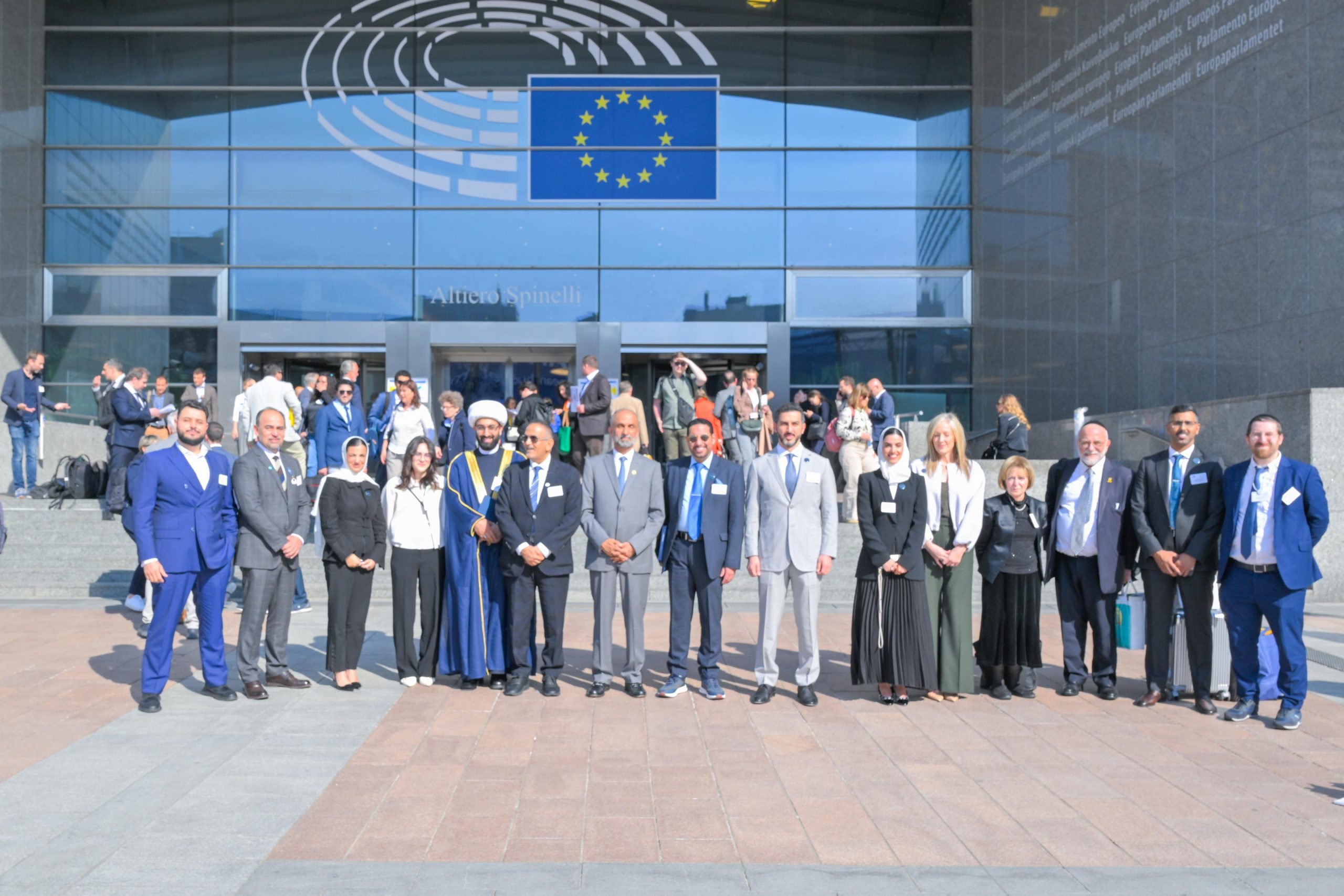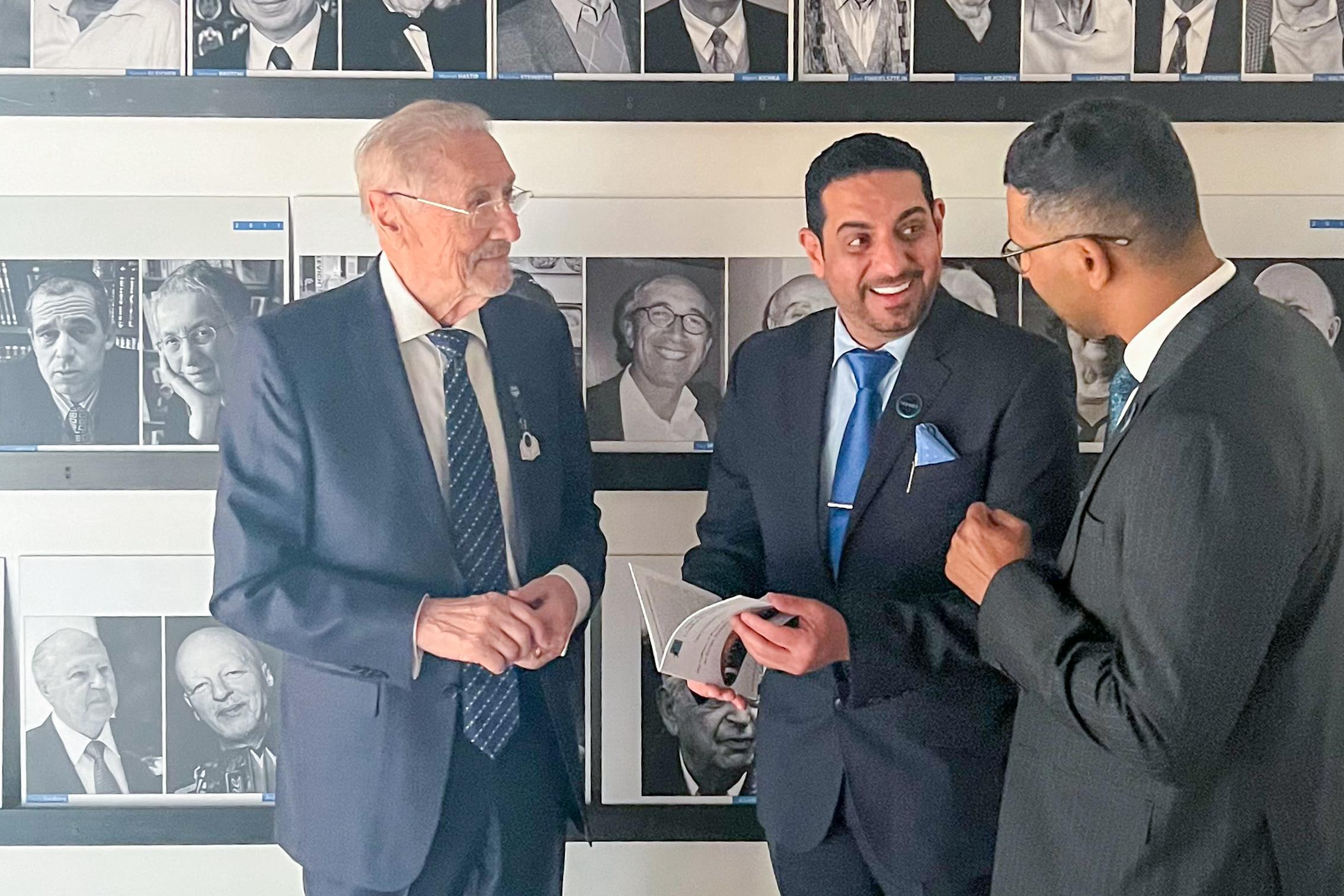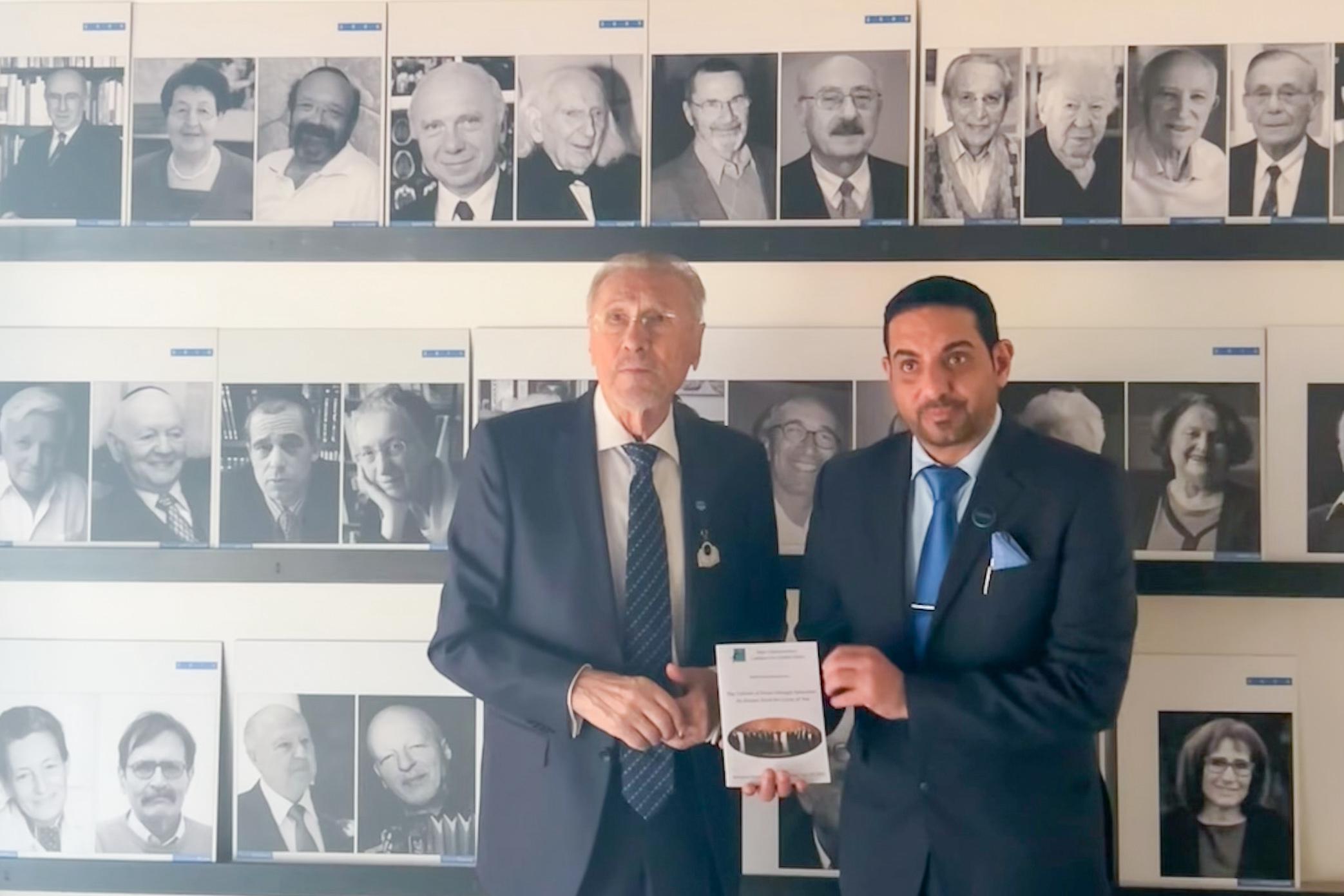As part of its research tour in Belgium, TRENDS Research & Advisory held a strategy session with Shoshana Bekerman, Director of the Inter-Parliamentary Coalition for Global Ethics (IPCGE), and Prof. Dr. Emil Constantinescu, former President of Romania. The session underscored the critical role of think tanks in confronting extremism, terrorism, and ideologies that promote violence, including most notably the Muslim Brotherhood, which was cited as a growing threat to global peace and stability.
Participants emphasized the need to strengthen the efforts of active think tanks in promoting values of tolerance, coexistence, and a culture of dialogue. They described think tanks as essential bridges of knowledge between societies and as platforms for civilizational dialogue. The session highlighted the scientific capabilities of think tanks in advancing peace and rejecting violence through expanding strategic partnerships with international parliaments and policymakers, as well as through rigorous analysis of transnational extremism and terrorism.

Confronting a Threat to Global Stability
Dr. Mohammed Abdullah Al-Ali, CEO of TRENDS Research & Advisory, stated during the session that think tanks play a pivotal role in dismantling extremist ideologies and confronting terrorist groups. He stressed the importance of raising youth awareness and protecting them from the ideological toxins disseminated by extremist movements, especially across digital platforms. Such narratives, he warned, now pose a serious threat to global security, development, and peace.
Dr. Al-Ali called for greater regional and international cooperation to cut off sources of terrorist financing, dismantle the political and social environments that foster extremism, and develop a deeper understanding of the contexts in which such movements thrive. Think tanks, he said, are uniquely positioned to inform and shape comprehensive global strategies to counter these threats.
He also underscored the importance of building common ground among global think tanks, academic institutions, media, and civil society, both public and private, to enable collaborative international efforts in combating extremism, rejecting hate speech and violence, and promoting a message of tolerance and peaceful coexistence.

A Call for Joint Research Strategy
Shoshana Bekerman, Director of IPCGE, called for a joint research strategy uniting think tanks and international parliaments, with a focus on youth engagement. She emphasized the need to immunize young people against extremism, dismantle the rhetoric of terrorist groups, and highlight forms of peaceful religious expression that align with community values, steps she said are vital in countering terrorism at the societal level.
Bekerman noted that research institutions are powerful tools for building mutual trust between peoples and communities. Through objective knowledge production and inclusive dialogue platforms, she said, think tanks can help transcend political and cultural divides and support the development of informed strategies to combat violence and extremism, while reinforcing shared human values.

Digital Poisons
Prof. Dr. Emil Constantinescu, former President of Romania, stressed the importance of increasing scientific and knowledge exchange among countries and think tanks worldwide to advance strategies against terrorism and violent extremism. He warned of the dangerous exploitation of social media platforms by extremist groups to spread their ideologies and recruit youth, noting that the digital world has made the globe a small village, making it easier to spread what he termed “digital poisons.”
Constantinescu added that shared global challenges also offer unique opportunities, from climate change to COVID-19, which have drawn communities closer together. He argued that terrorism and extremism, too, should be reframed: not merely as security threats to institutions and states, but as opportunities to promote tolerance, coexistence, acceptance of others, and global dialogue.



